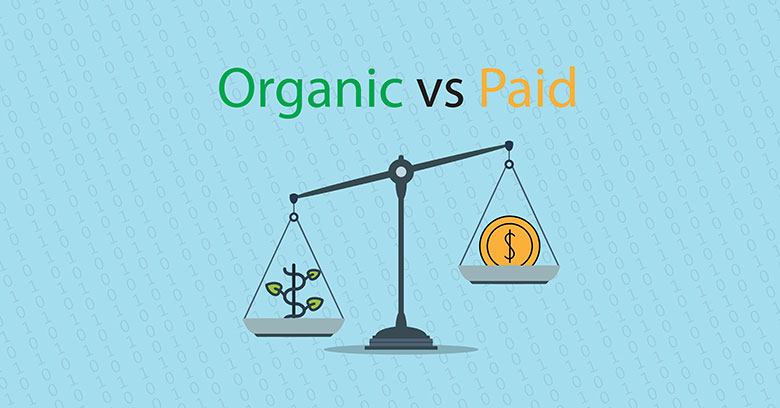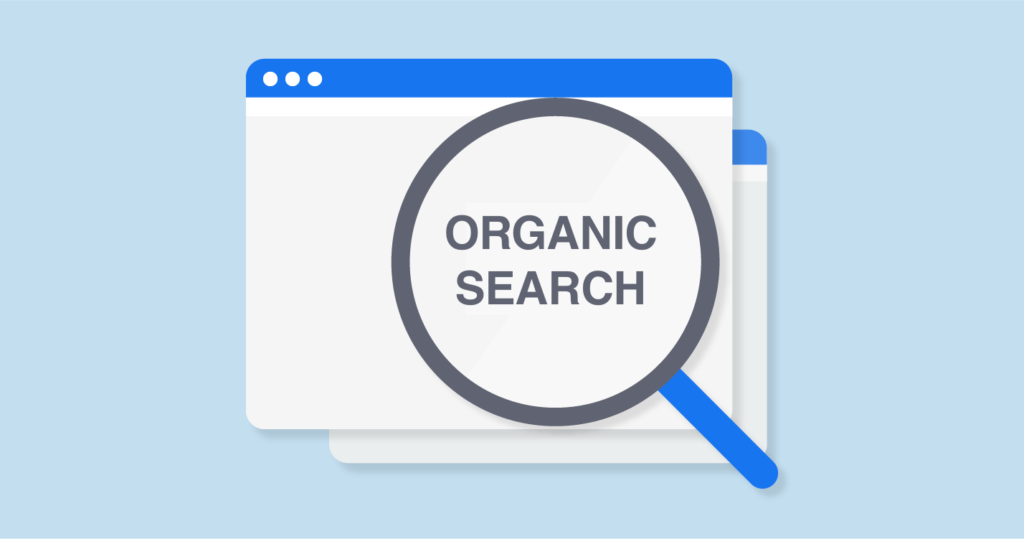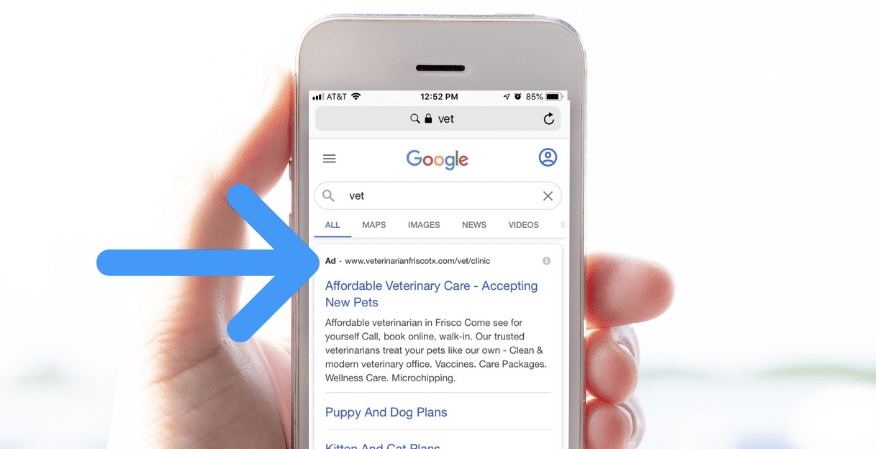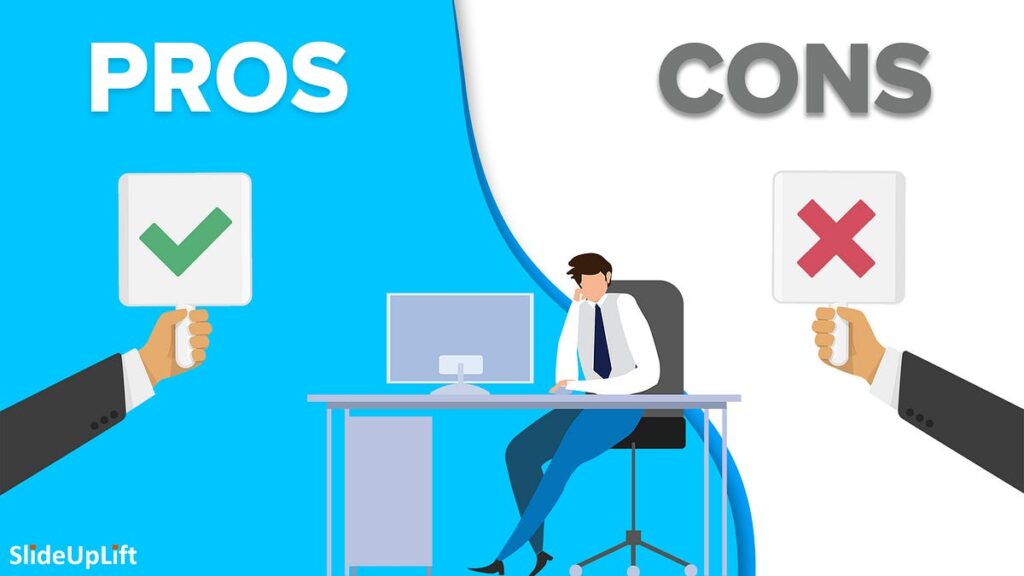Organic Search vs Paid Search: what’s the difference?

Organic Search vs Paid Search provides a must-bookmark breakdown. Plus, it offers helpful advice when it comes to choosing between organic or paid search for your online marketing and advertising strategy.
These organic search focus on unpaid rankings in search results, paid search focuses on paid rankings. But with organic search, companies use SEO to optimize their site’s visibility or rankings in search results. In comparison, paid search allows users to pay for a prominent spot in search results.
Table of Contents
Add a header to begin generating the table of contents
What is Organic Search?

This organic searches operate solely by comparing the content of the user query with the information available on the searchable internet. Search engines like Google use complex algorithms to determine the best matches between what the user is looking for and the quality content available online. A website can take advantage of organic search by presenting the website to Google to be filed and afterward making website pages that depend on specific keywords that the site is focusing on. A organic rank on the website does not cost any amount every month. And the main expense is the time and exertion to get to that ranking.
Benefits of Organic Search
Organic search offers several key benefits for businesses and websites looking to drive traffic and grow their online presence:
Organic search Costs nothing
In comparison to paid search, organic search comes with zero upfront costs. Your company doesn’t have to find funds in your budget to provide your team with a monthly ad spend, for example. All you need with organic search is time.
That time commitment can range from researching SEO basics to building a strategy to creating optimized content and more. And you can invest money into organic search, you have the freedom to choose.
While SEO efforts require investment in time, resources, and expertise to optimize content, technical aspects, and acquire backlinks, the traffic generated from organic search results does not involve direct payments to search engines for each click received. This makes organic search a cost-effective and sustainable method for driving traffic to websites over the long term, contributing to a favorable return on investment (ROI) compared to paid advertising channels.
Organic Search delivers an impressive ROI
When it comes to organic search vs. paid search, return on investment (ROI) is an undeniable point of discussion. No matter the channel, whether it’s organic search, social, or paid search, you want a return on your efforts. Organic search traffic is essentially free in terms of direct costs per click (CPC).
Once a website achieves high rankings for relevant keywords through effective Search Engine Optimization (SEO) strategies. And it can attract traffic without incurring ongoing expenses for each visitor. This contrasts sharply with paid search advertising, where each click on an ad involves a monetary cost.
The good news, though, is that optimizing your site for organic search (or using SEO) offers an impressive ROI. And a organic search enhances brand credibility and trust. Consistently appearing in top organic search results establishes a brand as an authority in its industry, fostering trust with potential customers and increasing the likelihood of conversions. This credibility not only boosts immediate ROI. But also contributes to long-term customer loyalty and brand reputation.
Organic Search Compounds on its benefits
The organic search not only delivers a strong return on investment (ROI) but also compounds its benefits over time through several interconnected advantages:
Firstly, the cost-effectiveness of organic search is a foundational benefit. Unlike paid advertising, where costs accrue with each click, organic traffic incurs no direct costs per click (CPC). This cost savings allows businesses to allocate resources towards other strategic initiatives, thereby maximizing overall marketing efficiency.
Secondly, organic search provides long-term sustainability. Once a website achieves high rankings for relevant keywords, it can continue to attract traffic without ongoing investments in advertising budgets. This sustainability is crucial for maintaining consistent visibility and traffic over extended periods, resulting in continuous returns on initial SEO investments. So, these can generate more:
- Traffic
- Lead
- Revenue
- Rankings
Organic Search Boosts Credibility
From a user standpoint, organic search can increase your credibility. Whether a person’s searching for comfortable footwear for a vacation or reliable software for a business, your company makes a positive first impression when you appear at the top of organic search results. In comparison, organizations that appear in the paid section can seem less credible.
Not to mention, if your business shows up in several different organic search results, it can boost a user’s brand awareness for your company.
The organic search results are perceived as earned placements based on relevance and quality rather than paid advertisements. Users tend to trust these organic listings more because they reflect the search engine’s determination that the website is authoritative and valuable for the given query. And this trust translates into higher click-through rates (CTRs) and engagement levels compared to paid ads, as users view organic results as more reliable sources of information.
Continuing to see your website in results increases your credibility, too, because you continue to pop up as a resource for their questions.
What is Paid Search?

Paid searches connect companies that invest in organic SEO (search engine optimized) advertising with users who look for similar products or services. These results will generally pop up due to specific keywords the company has targeted for its advertising, even if they aren’t as closely matched to user queries as the organic results. A Paid search works on a pay-per-click model. And it is a kind of contextual advertising where site owners pay a charge to have their site shown in top search engine results page placement.
Benefits of Paid Search
This paid search, also known as Pay-Per-Click (PPC) advertising, offers several distinct benefits for businesses looking to drive targeted traffic to their websites:
Paid search generates instant results
In the organic search vs. paid search debate, paid search gets a boost with its turnaround time.
When your company advertises through paid channels, you can see results as soon as your ads go live. In most cases, advertising platforms like Google Ads or Facebook Ads will approve your campaigns and ads in a matter of minutes.
Firstly, Immediate Visibility: Paid search campaigns can be set up and launched swiftly, with ads appearing prominently on search engine results pages (SERPs) almost instantly.
Secondly, Targeted Audience Reach: PPC allows precise targeting based on various factors such as demographics, location, device type, and user behavior.
Moreover, Control and Flexibility: PPC platforms like Google Ads and Microsoft Advertising offer robust tools for advertisers to manage their campaigns in real-time.
Paid search delivers an impressive ROI
In paid search, or PPC (Pay-Per-Click) advertising, is renowned for its ability to deliver an impressive return on investment (ROI) due to several key advantages:
Firstly, Measurable Results: PPC campaigns provide precise and real-time performance metrics such as clicks, impressions, conversions, and cost per conversion (CPA). This level of granularity allows advertisers to accurately measure the ROI of their campaigns and optimize strategies to maximize profitability.
Secondly, Immediate Impact: Unlike organic search or other forms of marketing that may take time to gain traction, paid search delivers immediate results. And once a campaign is launched, ads can start appearing on search engine results pages (SERPs) within minutes, driving traffic and potential conversions almost instantly.
Moreover, Targeted Audience Reach: PPC offers advanced targeting options based on demographics, location, interests, and search intent. Advertisers can tailor their campaigns to reach specific audience segments most likely to convert. And it ensures efficient use of ad spend and maximizing ROI by focusing on high-value prospects.
Paid search accommodates every budget
Paid search, also known as PPC (Pay-Per-Click) advertising, is highly flexible and can accommodate businesses of varying sizes and budgets effectively:
Firstly, Budget Control: PPC platforms like Google Ads and Microsoft Advertising allow advertisers to set daily or campaign budgets based on their financial capacity. This flexibility ensures that businesses can start with a budget that aligns with their resources and adjust spending as needed over time.
Secondly, Bid Strategy Options: Advertisers have the freedom to choose from various bidding strategies that suit their goals and budget constraints. Whether it’s manual bidding, automated bidding, or a combination of both, PPC platforms provide options to optimize bids for maximum return on investment (ROI) within the allocated budget.
Moreover, Cost Efficiency: PPC operates on a pay-per-click model, meaning advertisers only pay when users click on their ads. This cost structure allows businesses to control spending and allocate funds directly to the acquisition of targeted traffic and potential customers, ensuring efficient use of marketing budgets.
Paid search supports other marketing channels
In the organic search vs. paid search debate, both support other marketing channels.
With paid search, your strategy can help several other channels, including:
- Organic
- Social
- And more
For example, you can use keyword data to inspire new content for your organic search strategy. Or, you can apply ad copy and ad design to your social media advertising campaigns. You can even use PPC to build your email subscriber list, which can help you generate and nurture valuable leads. By integrating PPC with SEO, content marketing, email campaigns, and other initiatives, businesses can create cohesive, multi-faceted marketing strategies that maximize reach, engagement, and ROI across the digital landscape.
Organic Search vs Paid Search
| S. No. | Parameters | Organic Search | Paid Search |
| 1. | Search Results | The organic search results appear in the middle of the page. | The paid search results appear at the top of the web page. |
| 2. | Clicks | Organic Search gets less clicks. | Paid search gets more clicks. |
| 3. | Ranking | This is a long process to get rank in one of the top positions. | By paying big amount, site can be ranked on top quickly. |
| 4. | Traffic | The Traffic is better than other forms. | It is not better than other forms. |
| 5. | Conversion | Conversion is not as good as Paid search traffic. | Highly optimized keywords generate more conversions. |
Advantages & Disadvantages of Organic Search vs Paid Search

Organic Search Advantages
- Costs nothing
- Impressive Return on Investment (ROI)
- By maintaining SEO strategy as well as expanding that, a company can take maximum benefit out of it.
- Increasing credibility
- Alluring relevant users
- You can help with a variety of alternative marketing outlets, including Social, Paid, Email, Video, and more
Paid Search Advantages
- Instant results
- Provides keyword info for SEO
- Impressive Return on Investment (ROI)
- Allures ready-to-buy users
- Some instances of ad campaign data: Keywords, Time spent on the page,
Demographics and other information. - You can help with a variety of alternative marketing outlets, including Social, Paid, Email, Video, and more
- Suitable for all budgets
Organic Search Disadvantages
- Regular maintenance is required.
- Takes time to provide results
- Fights for real estate from search engines however, an SEO background and skill set are required.
Paid Search Disadvantages
- It necessitates ongoing maintenance
- Upfront costs
- Short-term outcomes are provided
- PPC experience and skillset are required.
Conclusion
In conclusion, understanding the difference between organic search and paid search is crucial for any digital marketing strategy:
1) Organic Search is about earning traffic naturally through SEO efforts, focusing on optimizing website content, improving site authority, and gaining visibility in search engine results without paying for clicks. And it requires ongoing effort but can yield sustainable traffic over time.
2) Paid Search, or PPC advertising, involves paying for placement in search engine results. It provides immediate visibility at the top of SERPs, allowing advertisers to target specific keywords, control ad messaging, and measure performance through click-through rates and conversions.
Choosing between organic and paid search depends on factors like budget, timeline, and marketing goals. And often, a combination of both strategies can maximize visibility and drive qualified traffic to your website effectively.


